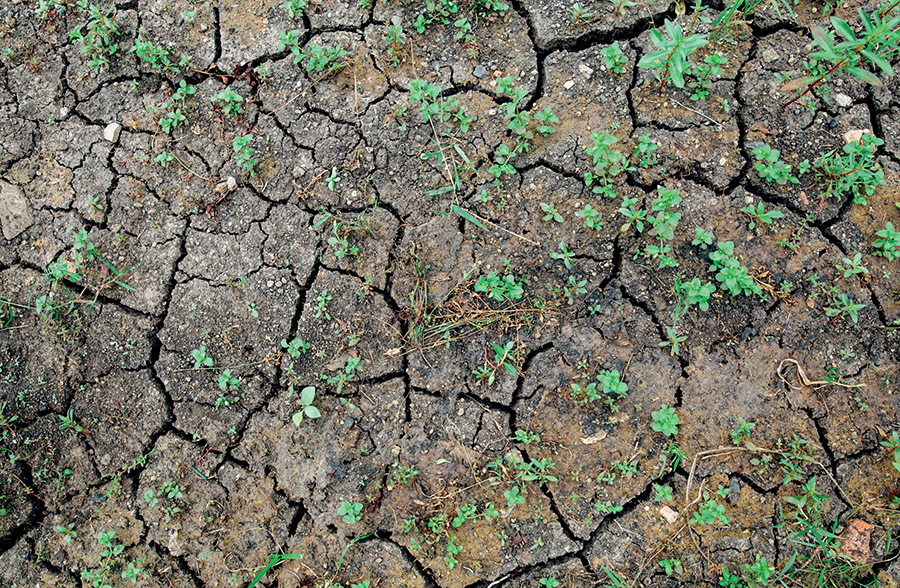Summer 2022 drought provides warning for future years
21st June 2024
The UK will be increasingly tested by more droughts like those seen in 2022, emphasising the importance of being prepared for similar extreme weather in future, say scientists who have analysed that summer’s events.

The recently published study by the UK Centre for Ecology & Hydrology (UKCEH) outlines how the drought evolved and its impacts on water resources, wildlife and people, comparing the situation with previous droughts and looks at whether it is an indication of future events.
Summer 2022 was the joint hottest (with 2018) and fifth driest since the 1890s. The drought affected large parts of the country and was the worst in some areas since 1976. It was part of wider European drought, believed to be the worst on the continent in 500 years.
The prolonged and extensive exceptional heat, dry soils and low river flows had impacts across much of the UK including water restrictions – with six companies introducing hosepipe bans affecting around 20 million people – and restrictions on waterways navigation.
Challenges for agriculture
Extensive challenges for agriculture included low crop and milk yields, as well as dying grass in grazing fields that forced farmers to use winter food stores. During the summer, there were nearly 25,000 wildfires; they spread easily across dry fields and also affected urban areas. Environmental impacts included algal blooms and fish kills.
A Level 4 heat health alert was issued for the first time since its introduction in 2004, and there were an estimated 2,800 excess deaths of over 65s due to heat between June and August. That summer’s events underline our continuing vulnerability to intense droughts associated with low spring/summer rainfall alongside very high temperatures – especially given it followed shortly after another intense summer drought in 2018.
UKCEH hydrologist Jamie Hannaford, one of the authors of the study, said: “The 2022 drought posed significant challenges to water management and communication with the public given the speed of onset of drought conditions and impacts. It has provided water managers with an important stress test, enabling them to assess our resilience to the kind of extreme event that we will see much more of in future.”
Hydrologists classify 2022 as a summer drought, which developed relatively quickly, as opposed to a multi-year drought driven by successive dry winters. While there is significant uncertainty about how multi-year droughts may evolve in future, scientists are highly confident, based on modelling, that we will be increasingly tested by more droughts like 2022.
Risk of droughts
Human-driven climate warming increases the risk of droughts like 2018 and 2022, associated with drier summers and higher temperatures.
The authors of the study, published in the Royal Meteorological Society journal Weather, say the impacts on water supply were relatively modest in terms of duration and areas affected. Like 2018, this was largely due to wetter winters before and after the drought.
They say droughts like 2022 emphasise the need for improved real-time monitoring and forecasting systems. This would give an indication of the likely impacts that may lie ahead, to help apply mitigation measures – such as restrictions on abstractions or efforts to safeguard the environment like fish rescues – at an early stage.
Soil moisture monitoring
UKCEH oversees COSMOS-UK, a long-term network of soil moisture monitoring sites, producing live data, which was used for the 2022 drought study.
It is also leading the development of a Floods and Droughts Research Infrastructure (FDRI), funded by UK Research and Innovation (UKRI). The new instruments will produce an extensive range of new measurements across several UK catchments. The data will enable researchers to improve computer models to predict when and where droughts and floods will happen, and how severe they will be.
Read more arable news
